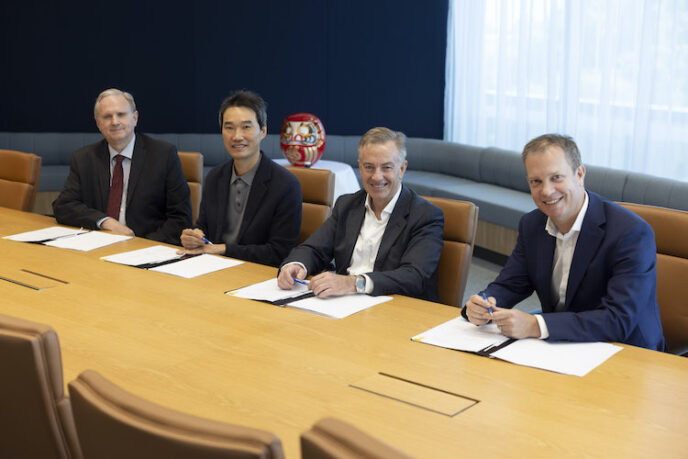
Ampol, Hyundai Australia, Pacific Energy and Toyota Australia have signed a memorandum of understanding (MOU), to jointly develop hydrogen refuelling infrastructure.
The goal of the MOU is to combine the expertise and capabilities of each of the partners to help develop hydrogen refuelling stations for FCEVs in Canberra.
The agreement brings together the four companies that are all proponents of Australia’s growing hydrogen economy and demonstrates a commitment to work together to build a more sustainable future.
Both Hyundai and Toyota currently have fuel cell electric vehicles (FCEV) fleets operating in Australia today, while Ampol and Pacific Energy are investing in energy solutions to support customers through the energy transition.
“Hydrogen can play an important role in delivering decarbonisation benefits for transport and developing the right infrastructure to support a successful rollout is key,” Ampol managing director and chief executive Matt Halliday says.
“The MOU establishes a collaborative working relationship between the parties, who are all required to develop the necessary hydrogen ecosystem to make hydrogen use as a transport fuel feasible,” he says.
“In 2021, Hyundai deployed 23 NEXO Fuel Cell Electric Vehicles into Canberra as a partner in the ACT Government’s hydrogen station project – the first hydrogen refueller of its kind in Australia,” Hyundai Australia chief executive Ted Lee says.
“Our consortium partners have a great track record of deploying energy and refuelling infrastructure, along with hydrogen fuel cell vehicles. Hyundai looks forward to working with our experienced partner companies and the broader government and business community in the ACT to help the transition to a cleaner and greener transport future,” he says.
Pacific Energy chief executive Jamie Cullen says the company was pleased to be a part of the consortium of like-minded organisations, which he says is driven to decarbonise the transport sector and make Australia’s H2 ecosystem a success.
“Our purpose at Pacific Energy is to transition the world to a clean energy future. To be successful, we know we must collectively lean into bold opportunities that help accelerate our journey towards net zero, and we know hydrogen and zero emissions vehicles play an important role in this approach,” Cullen says.
“Since 2018, Toyota has been expanding our hydrogen capability here in Australia, first with local trials of our Mirai FCEV sedan and then with the establishment of Victoria’s first hydrogen production, storage and refuelling facility,” Toyota Australia president and chief executive Matthew Callachor says.
“This month, we announced plans to locally assemble and distribute the EODev GEH2 fuel cell generator in Australia and this joint collaboration provides further opportunities to explore and grow this vital technology,” he says.








